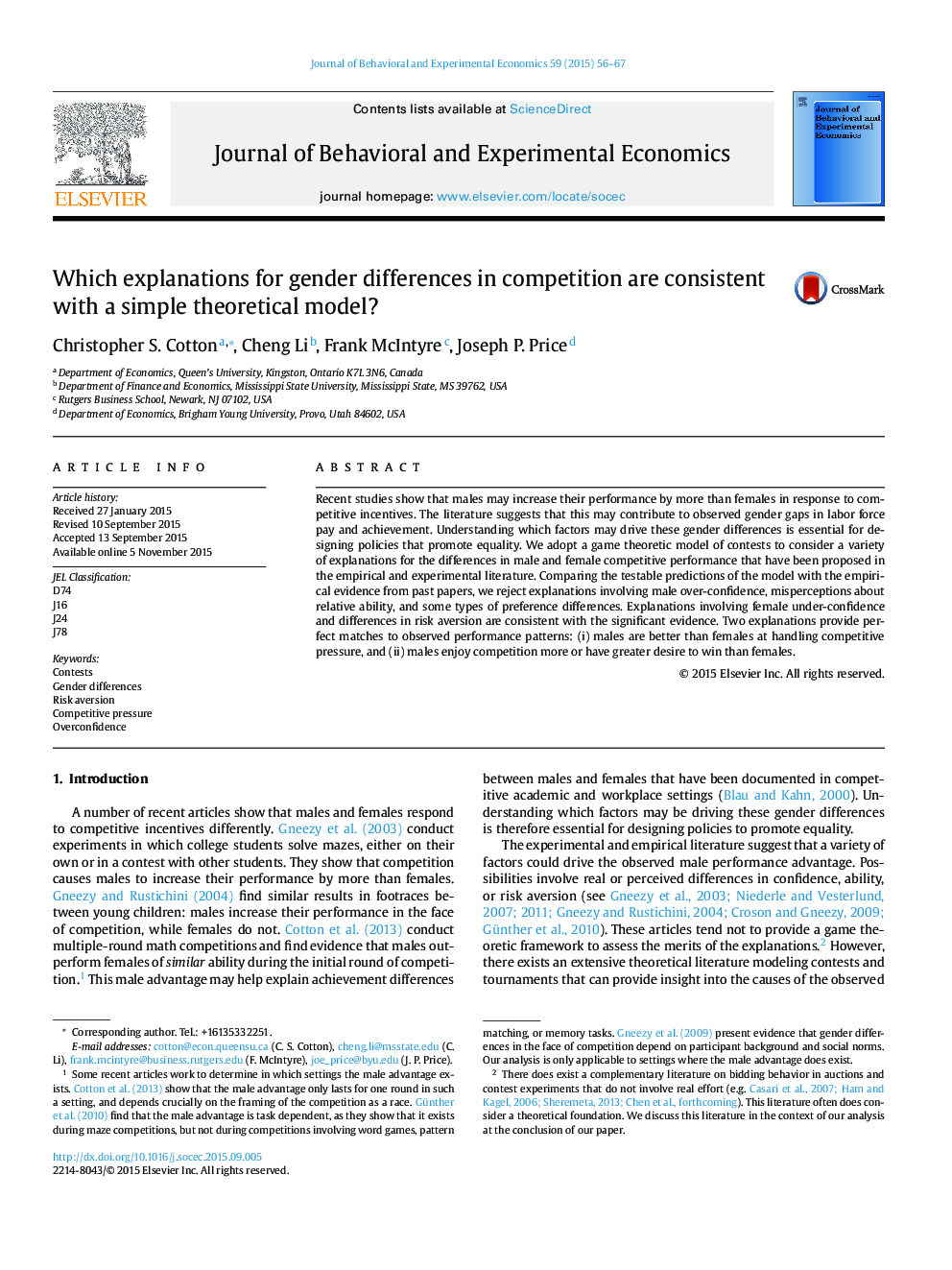| کد مقاله | کد نشریه | سال انتشار | مقاله انگلیسی | نسخه تمام متن |
|---|---|---|---|---|
| 881851 | 1471555 | 2015 | 12 صفحه PDF | دانلود رایگان |
• Males tend to perform better in competitive environments than similar ability females.
• We model various explanations for the male advantage using contest theory.
• We compare theoretical predictions with past experimental evidence
• Can rule out explanations involving male overconfidence and inaccurate beliefs.
• Best explanations involve differences in risk aversion and enjoyment from competing.
Recent studies show that males may increase their performance by more than females in response to competitive incentives. The literature suggests that this may contribute to observed gender gaps in labor force pay and achievement. Understanding which factors may drive these gender differences is essential for designing policies that promote equality. We adopt a game theoretic model of contests to consider a variety of explanations for the differences in male and female competitive performance that have been proposed in the empirical and experimental literature. Comparing the testable predictions of the model with the empirical evidence from past papers, we reject explanations involving male over-confidence, misperceptions about relative ability, and some types of preference differences. Explanations involving female under-confidence and differences in risk aversion are consistent with the significant evidence. Two explanations provide perfect matches to observed performance patterns: (i) males are better than females at handling competitive pressure, and (ii) males enjoy competition more or have greater desire to win than females.
Journal: Journal of Behavioral and Experimental Economics - Volume 59, December 2015, Pages 56–67
